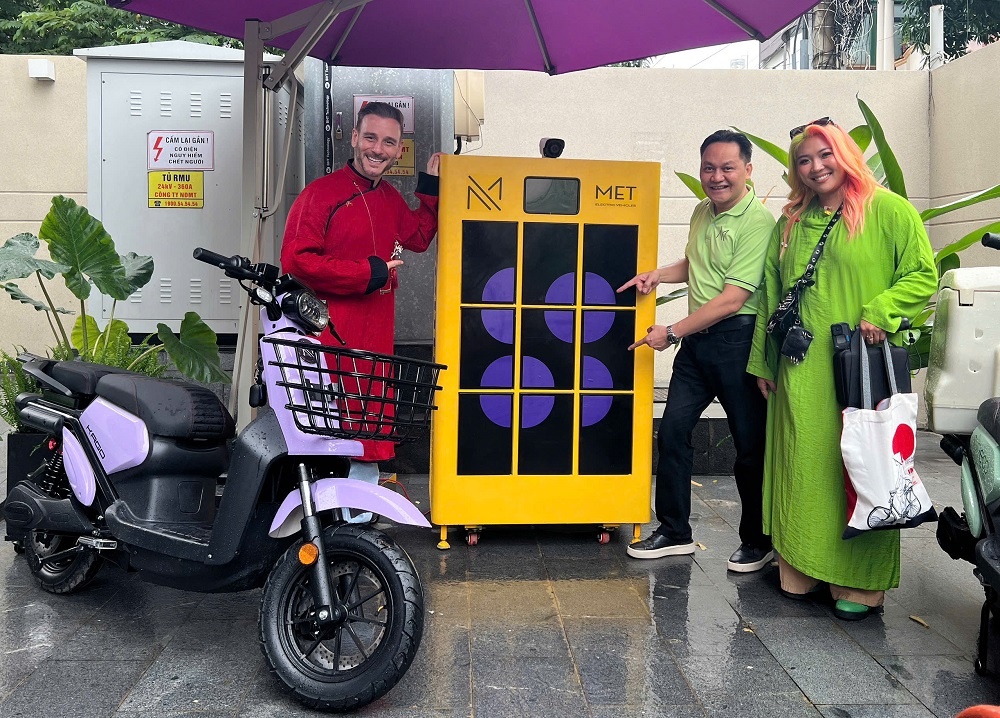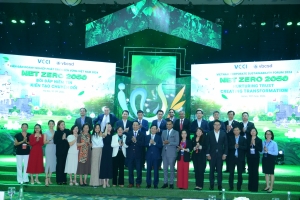Urban mobility to support the nation’s net-zero drive
However, Vietnam’s economic success did not come without a price. Vietnam’s air quality has been deteriorating, with cities like Hanoi and Ho Chi Minh City experiencing high levels of particulate matter. In 2023, Vietnam was ranked the 22nd worst in the world for air quality. The primary sources of air pollution include vehicle emissions, industrial activities, and construction dust. This pollution poses significant health risks, contributing to respiratory and cardiovascular diseases.
 |
| Urban mobility to support the nation’s net-zero drive, Photo: Paul Nguyen |
Vietnam’s rapid economic growth has also led to a surge in electricity demand, often outstripping supply. The country experienced significant power shortages in 2023, particularly in the northern regions, due to reliance on fossil fuels. Dependence on coal and gas for electricity generation limits flexibility and sustainability.
To address these shortages, Vietnam’s government has committed to achieving net-zero carbon emissions by 2050 and is focusing on renewable energy to mitigate climate change.
In order to tackle these challenges, Vietnam has set ambitious renewable energy goals through its power development strategy. The country has significant potential for solar and wind energy, and the government is working to engage investment in these sectors. Key initiatives include expanding solar farms and rooftop solar installations, developing onshore and offshore wind projects, and promoting energy-saving technologies and practices.
Addressing the nation’s environmental and energy challenges requires a multifaceted approach, including stricter pollution controls, investment in renewable energy, and improvements in energy efficiency. Among them, a revolution in urban mobility could facilitate Vietnam’s commitment to achieve net-zero emissions by 2050. Given that motorcycles are accounting for 90 per cent of all traffic pollution, it is vital to drive the shift to electric two-wheelers (E2W). In Vietnam, there are 10 E2W manufacturers, nine of which are Vietnamese.
As a major player in the Vietnamese electric vehicle (EV) market, VinFast produces a range of e-scooters and is expanding its product line-up. Meanwhile, Dat Bike focuses on high-performance e-bikes with extended range and quick charging capabilities. Selex Motor is producing e-bikes for last mile shippers, powered by a battery-swapping network. Known for its innovative designs and focus on sustainability, MET EV is building a robust battery swapping network for aiming at universities across Vietnam and last mile delivery businesses.
However, there are several factors hindering the widespread adoption of E2W in Vietnam, such as energy efficiency and safety challenges. With regards to battery performance, limited range and long charging times are significant barriers.
Companies like Dat Bike are addressing this by developing models with longer ranges and faster charging times. In addition, the lack of charging infrastructure creates anxiety among users. VinFast, MET EV and Selex Motors are working to alleviate this by expanding their networks of smart and safe stations.
Ensuring the safety of batteries is also crucial. MET EV is focusing on the latest LFP (lithium iron phosphate) battery technology to ensure the highest safety standards while reducing risks of fires and explosions.
Renewable energy providers also play a key role in facilitating the shift to E2W. An innovative cleantech company, Stride integrates renewable sources into the EV ecosystem, ensuring that the energy used is sustainable. By collaborating between renewable energy providers and smart charging/swapping stations, companies could become the effective solution to significant reduce the need for energy from the grid.
It is clear that the concept of EVs is still nascent in Vietnam, and convincing a market accustomed to traditional motorbikes is no small feat. E-bike producers may encounter technical hurdles, financial constraints, and a market hesitant to embrace change. However, the development of innovative EVs and smart charging/swapping stations can address the pressing issue of air pollution in urban areas, thereby moving towards a net-zero future.
 | Net-zero and AI ambitions face off As Vietnam strides towards becoming a leader in AI, concerns are mounting that rapid technological advancement could come at the expense of its ambition to attain net-zero emissions. |
 | Businesses embrace green transformation for net-zero goals Businesses' efforts to realise Vietnam's net-zero goal are being fostered, creating strong momentum for a seamless green transformation in terms of awareness, thinking, and action. |
(*)Paul Nguyen, chief growth officer, MET EV
What the stars mean:
★ Poor ★ ★ Promising ★★★ Good ★★★★ Very good ★★★★★ Exceptional
Related Contents
Latest News
More News
- Citi economists project robust Vietnam economic growth in 2026 (February 14, 2026 | 18:00)
- Sustaining high growth must be balanced in stable manner (February 14, 2026 | 09:00)
- From 5G to 6G: how AI is shaping Vietnam’s path to digital leadership (February 13, 2026 | 10:59)
- Cooperation must align with Vietnam’s long-term ambitions (February 13, 2026 | 09:00)
- Need-to-know aspects ahead of AI law (February 13, 2026 | 08:00)
- Legalities to early operations for Vietnam’s IFC (February 11, 2026 | 12:17)
- Foreign-language trademarks gain traction in Vietnam (February 06, 2026 | 09:26)
- Offshore structuring and the Singapore holding route (February 02, 2026 | 10:39)
- Vietnam enters new development era: Russian scholar (January 25, 2026 | 10:08)
- 14th National Party Congress marks new era, expands Vietnam’s global role: Australian scholar (January 25, 2026 | 09:54)

 Tag:
Tag:



















 Mobile Version
Mobile Version